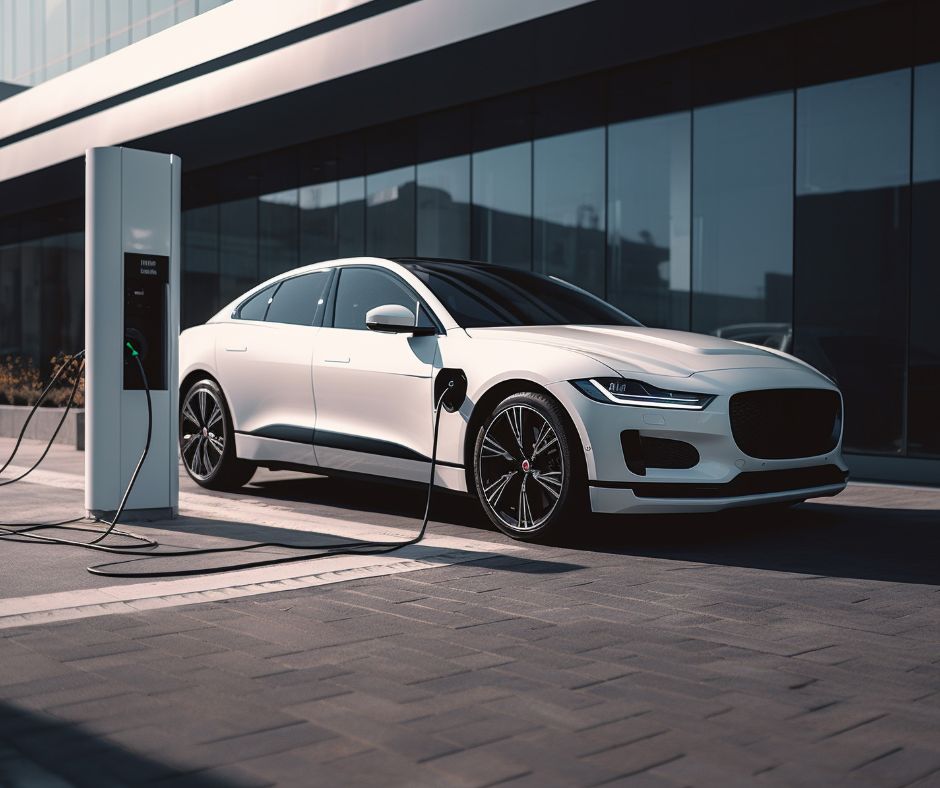
More and more Georgians are driving electric vehicles (EVs) on state roads and highways, including some of us here at MG Law!
While EVs offer undeniable benefits, it’s crucial to acknowledge and address the potential safety risks they pose. Of course, if you’ve been in a collision with an EV, the experienced Georgia accident attorneys at MG Law are here to help.
Contact us online or call (770) 988-5252 today for a free consultation.
Reasons Why EVs Are Considered More Dangerous Than Gas-Powered Vehicles
So, why are electric cars more dangerous in a crash? Well, it’s not that they are more dangerous in general. Instead, it’s because they pose more risks to drivers who aren’t in EVs and pedestrians. Whether running too quietly or having more electrical hazards, EVs present dangers that may not be common in gasoline-powered vehicles.
1. They Are Silent Speedsters
Unlike their gas-guzzling counterparts, EVs operate with powerful, near-silent motors, making them virtually inaudible at low speeds. This can create a dangerous blind spot for pedestrians, cyclists, and even other drivers, who may not be aware of an approaching EV until it’s too late. A study by the National Highway Traffic Safety Administration (NHTSA) found that pedestrian collisions involving EVs were 20% more likely than those involving gasoline-powered vehicles at low speeds.
Additionally, electric vehicles often have very high horsepower ratings, allowing them to accelerate quickly even in crowded urban areas, and drivers are simply not prepared for the race-car acceleration of an EV.
2. Crashes Are More Severe
Research by the Insurance Institute for Highway Safety (IIHS) highlights the significant danger posed by the sheer weight of EVs. A 1,000-pound weight difference translates to a 47% increase in fatality risk in crashes. An electric GMC Hummer weighs about 9,000 pounds (4,000 kilograms), with a battery pack that alone is 2,900 pounds (1,300 kilograms) — roughly the entire weight of a typical Honda Civic.
The heavier weight and increased performance of an EV increases the risk of serious injury and death by all drivers. Heavier vehicles also require longer stopping distances, increasing the risk of rear-end collisions, especially in emergency situations.
3. Their Weight Overloads Roadway Infrastructure
The entire purpose of guardrails, found along tens of thousands of miles of roadway, is to help keep passenger vehicles from leaving the road. Guardrails are intended to keep cars from careening off the road at critical areas, such as over bridges and waterways, near the edges of cliffs and ravines and over rocky terrain, where injury and death in an off-the-road crash are much more likely.
Preliminary tests by the University of Nebraska reveal that current guardrails often fail to withstand the force of heavy EVs, potentially increasing serious injuries or fatalities in rollovers.
4. Batteries Add a Huge Fire Risk
Another point of concern regarding electric car dangers is the lithium-ion batteries that power EVs. While they are efficient and have a high energy density, they also pose risks of thermal runaway, where the battery overheats and can lead to fires or explosions.
According to a 2021 report by the National Transportation Safety Board (NTSB), incidents involving EV batteries, though relatively rare, can be more intense and challenging to extinguish than gasoline fires, requiring firefighters to use large amounts of water and posing significant risks to first responders.
Are Electric Cars Safe in a Crash?
For occupants of electric vehicles, safety is a mixed bag. While the risk of fire is much higher for EV occupants, their safety standards are surprisingly high when it comes to general impact handling.
For example, the IIHS has found that several electric vehicles have performed exceptionally well in their safety tests. In 2024, the Tesla Model Y and Audi Q4 e-Tron received Top Safety Pick awards, indicating superior crashworthiness and occupant protection. These awards are based on criteria that include performance in front, side, rollover, and rear impact tests and an evaluation of crash prevention technologies.
The NHTSA also conducts crash tests and rates vehicles on a 5-star scale. Electric vehicles like the Chevrolet Bolt and Nissan Leaf have received high ratings in NHTSA crash tests, further indicating that EVs can provide decent levels of safety for their occupants. However, you may notice that both vehicles still have recalls for components that heighten fire risk or electrical malfunction.
In Content Form
What Happens to Electric Car Batteries in a Crash?
When considering the safety of electric vehicles (EVs) in accidents, a common question arises: Do electric cars explode in a crash?
Yes. Batteries can explode in a collision, but it is quite rare. Research and real-world experience have shown that while electric vehicle batteries can catch fire in severe crashes, the incidence rate is comparable to or lower than fires in gasoline-powered vehicles.
A study by Battelle, conducted for the U.S. Department of Energy, found that the risk of fire or explosion from an electric vehicle battery is no greater than that of vehicles powered by internal combustion engines. The study emphasizes that the risks can be effectively managed with proper safety measures and design.
What Changes Are Being Made to EV Regulations for Safety?
Regulatory bodies continue to refine and update safety standards in response to the evolving landscape of electric vehicle technology. In 2020, a regulation by the NHTSA went into effect requiring new models of EVs to make a minimum amount of noise. This change aims to help reduce pedestrian injuries and deaths due to silent EVs.
The NHTSA also has another regulation that requires that EVs protect their battery systems from damage during crashes and ensure that high-voltage components are isolated to prevent electrical shocks. This regulation seeks to minimize the risk of battery fires and explosions following a collision.
If You Get Into an Accident With an EV in Georgia, Consider Speaking With an Attorney
While EVs are undoubtedly convenient, they are still relatively new to the market. As such, regulation of electric vehicles is still in its infancy, and not all risks have been thoroughly researched. So, if you get into a crash either in an EV or with another EV, reaching out to an attorney may be a good option.
At MG Law, we have extensive experience with car accident claims involving EVs, hybrids, and gasoline-powered vehicles. With a successful track record of results and award-winning service, we’re dedicated to putting our clients first.
Call (770) 988-5252 or contact us online today for a free consultation. We proudly serve Georgia from our Conyers, Covington, and Atlanta offices.

